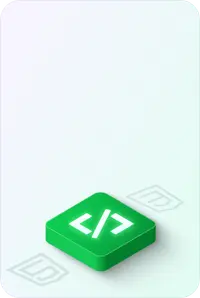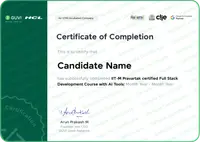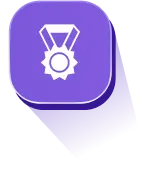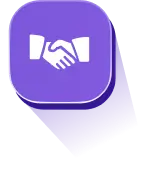IITM Pravartak Certified MERN Full Stack Developer Program with AI Integration
Build full stack skills in MERN with expert guidance, hands-on projects, and career support. Master in-demand tools like Git, MongoDB, Express, React, Node.js and more!
Build full stack skills in MERN with expert guidance, hands-on projects, and career support. Master in-demand tools like Git, MongoDB, Express, React, Node.js and more!
Discover everything you need to build, grow, and get hired as a MERN stack developer.
Live interactive classes, hands-on practice sessions & expert-led doubt clarification.
Sharpen your coding skills with 1500+ problems on top programming platforms.
Gain placement guidance, resume reviews, and job prep to accelerate your tech career.
Work on 100+ hours of real-world, industry-relevant projects to build a job-winning portfolio.
Be inspired by real learners who transformed their careers with HCL GUVI's expert-led training.
Step into top full stack roles with in-demand MERN skills.
Explore each phase of MERN Stack with structured, expert-led modules and AI-tools.
Learn, build, and grow under the guidance of professionals from leading tech firms.
Get hands-on experience with industry-standard tools to solidify your learning!
Practice what you learn by building full-fledged MERN projects to showcase your job-readiness.
Master front-end and back-end MERN skills that today's tech teams look for.
Earn credentials that validate your skills and boost your hiring potential.
Our students upskilled, worked on real projects, and achieved career breakthroughs. Now it's your turn!
The journey to becoming a developer starts with the right partner. Here's why HCL GUVI fits the bill.
| Features | HCL GUVI | Others |
|---|---|---|
| Exclusive Quarterly Hackathons | ||
| Dedicated AI Mock Interview | ||
| Dedicated Job Portal (Hyrenet) | ||
| Dedicated ZEN GPT support in LMS | ||
| IITM Pravartak Certification | ||
| Real world projects | ||
| Complete live class | Offered by few | |
| Training in Communication & Professional Skills |
Start strong with industry-relevant training and step-by-step career guidance.
Invest in your tech career without breaking the bank.


































